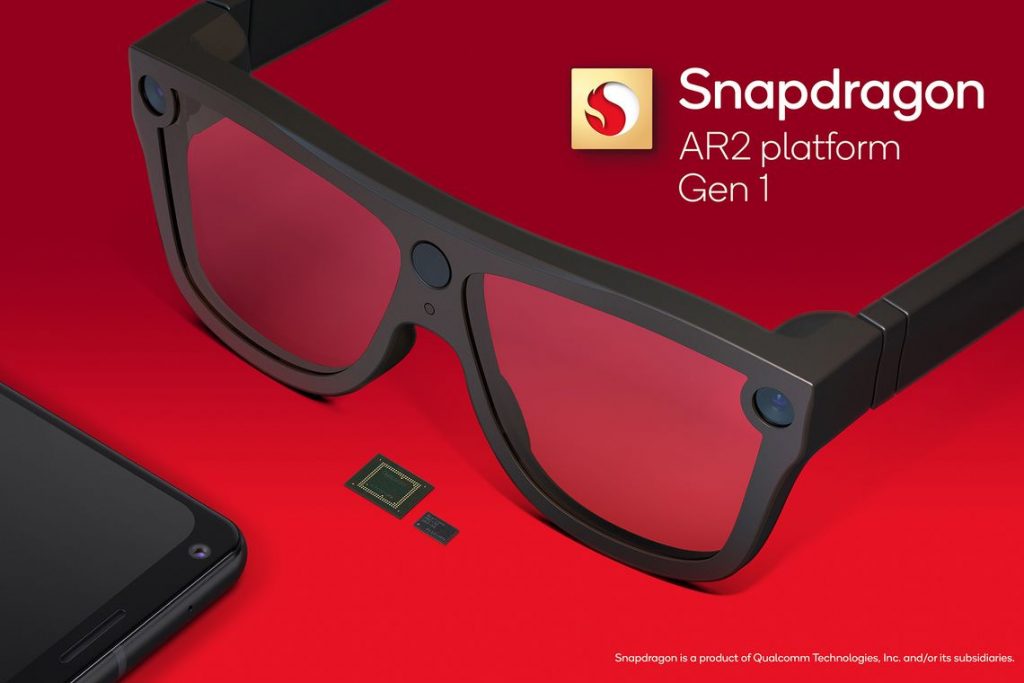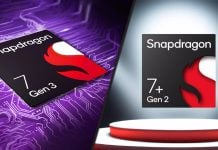Soon after announcing the Snapdragon 8 Gen 2 flagship smartphone processor, Qualcomm has taken the wraps off yet another chipset, dubbed Qualcomm Snapdragon AR2 Gen 1, which is built for Augmented Reality devices.
The new chip is a part of Qualcomm’s Extended Reality (XR) offerings and is claimed to deliver “groundbreaking AR technology that will unlock a new generation of sleek, highly capable glasses.”

With this new chipset, which is built from the groups up, the company is aiming to revolutionize the head-worn glass form factor and usher in a new era of spatial computing experiences for the real-world/metaverse mix.
It is built on a multi-chip distributed processing architecture combined with customized IP blocks. The company says that the new platform delivers 2.5x better AI performance than the Snapdragon XR2 Gen 1 and consumes 50% less power, making it ideal for AR glasses that consume less than 1W power.
The chipset consists of an AR processor, an AR co-processor, and a connectivity platform. The AR processor is optimized for low motion-to-photon latency while supporting up to nine concurrent cameras for the user and environmental understanding. The AR co-processor aggregates data from connected cameras and sensors, enabling features like eye tracking and iris authentication for foveated rendering.
As for connectivity, the chip uses the FastConnect 7800 system and brings support for the latest Wi-Fi 7 technology with less than 2ms latency between the AR glasses and the smartphone or host device. It is also capable of offloading complex tasks to Snapdragon-powered smartphones, PCs, or other compatible host devices to reduce latency and offer a smoother visual experience.
Qualcomm says it is working with several OEMs, including Lenovo, LG, Oppo, TCL, Xiaomi, Pico, QONOQ, Rokid, Sharp, Tencent, and Vuzix, among others, to bring a new generation of AR smart glasses featuring the Snapdragon AR2 to the market. As of now, details about the availability of any AR devices from these brands aren’t known, but we expect to know more in the coming months.
RELATED:
- Qualcomm Snapdragon 8 Gen 2 flagship smartphone chipset goes official
- Apple will use Qualcomm modems in iPhones until 2025 – Analyst
- Qualcomm is reportedly planning to release an ARM-based 12-core CPU
- Qualcomm Snapdragon 7 Gen 2 details surface online
- Xiaomi Launched Mijia AR Glasses Camera with 15x Hybrid Zoom, Snapdragon 8 SoC







